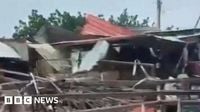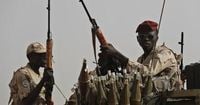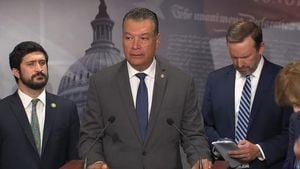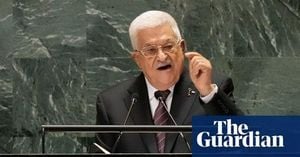On Friday, September 19, 2025, the city of el-Fasher in Sudan’s Darfur region was rocked by one of the deadliest attacks of the country’s ongoing civil war when a drone strike hit the Al-Safiya Mosque during morning prayers, killing more than 70 people. The attack, widely attributed to the paramilitary Rapid Support Forces (RSF), targeted worshippers and displaced people sheltering at the mosque, according to multiple sources including the Sudanese army, local rescuers, and international media outlets such as BBC and France 24.
The RSF, which has laid siege to el-Fasher for over a year, has been fighting to seize complete control of the city – the last major stronghold of the Sudanese army in Darfur. El-Fasher, home to more than 300,000 civilians, has become a flashpoint in a conflict that has entered its third year and shows no signs of abating. The city has been under near-constant attack, with the RSF employing drones and artillery, and civilian facilities such as hospitals, schools, and displacement centers repeatedly hit in the crossfire, as reported by Al Jazeera and BBC.
Eyewitnesses described scenes of devastation in the aftermath of Friday’s strike. The Emergency Response Room group at the Abu Shouk camp, a volunteer organization coordinating relief efforts, stated that “the bodies were retrieved from the rubble of the mosque.” Residents told AFP and BBC that they were combing through the wreckage, searching for and burying the dead. BBC Verify authenticated footage showing around 30 bodies wrapped in shrouds and blankets beside the mosque, which was left mangled and barely recognizable.
The Sudan Doctors’ Network, an NGO operating in the region, condemned the attack as a “heinous crime” against unarmed civilians, accusing the RSF of “blatant disregard for humanitarian and religious values and international law.” The Resistance Committees in el-Fasher, a local group of citizens and human rights activists, posted video evidence online showing the mosque reduced to rubble, with debris and bodies scattered across the site.
As the battle for el-Fasher intensified, satellite images analyzed by Yale University’s Humanitarian Research Lab revealed RSF units advancing on multiple fronts, including around the Abu Shouk camp and the former UNAMID peacekeeping base. The RSF has reportedly entered the headquarters of the Joint Forces—armed groups allied to the Sudanese army—located in a former United Nations compound considered a critical line of defense. BBC verified footage of RSF fighters inside the expansive complex, though it remains unclear whether full control has been established.
These advances place el-Fasher’s airport and the army’s division headquarters within direct RSF firing range. According to the Humanitarian Research Lab, unless the Sudanese military receives immediate reinforcements, el-Fasher is likely to fall to the RSF. Such a development would cement the group’s control over western Sudan and reinforce the country’s de facto split: the army holding the north, east, and center, while the RSF dominates the south and nearly all of Darfur.
The humanitarian toll of the conflict is staggering. Since April 2023, the war has killed tens of thousands and displaced approximately 12 million people, according to United Nations figures cited by France 24 and CBS News. The UN describes the situation as one of the world’s worst humanitarian crises, with famine prevalent in parts of Darfur and southern Sudan. The city of el-Fasher, under siege for more than a year, has seen its population trapped by fighting and cut off from essential aid, exacerbating the suffering of civilians.
A report released by the UN Human Rights Office (OHCHR) on the same day as the mosque attack painted a grim picture of the conflict’s trajectory. Civilian deaths and ethnic violence have risen sharply in 2025, with 3,384 civilians killed in the first six months of the year—80 percent of the 4,238 civilian deaths recorded throughout all of 2024. The report detailed a “continued pervasiveness of sexual violence, indiscriminate attacks, and the widespread use of retaliatory violence against civilians, particularly on an ethnic basis, targeting individuals accused of ‘collaboration’ with opposing parties.”
New trends identified in the report include the increasing use of drones in attacks on civilian sites, even in northern and eastern regions of Sudan that had previously been spared. UN Human Rights chief Volker Turk warned of the “increasing ethnicization of the conflict, which builds on longstanding discrimination and inequalities,” posing grave risks for the country’s long-term stability and social cohesion.
International organizations and medical charities, such as Doctors Without Borders, have accused the RSF of carrying out systematic ethnic cleansing against non-Arab communities in the territories they conquer. In a recent report, the charity stated that RSF troops “spoke of plans to ‘clean El Fasher’ of its non-Arab...community.” The RSF has denied these accusations, insisting they are not involved in tribal conflicts. Nonetheless, UN and international observers remain deeply concerned about the targeting of civilians, especially those belonging to ethnic groups viewed as hostile by the RSF.
Despite repeated efforts by the United States, Saudi Arabia, Egypt, and the United Arab Emirates to broker a ceasefire, peace remains elusive. The conflict has effectively split Sudan, with no clear end in sight. The fall of el-Fasher would mark a significant turning point, potentially consolidating RSF control over western Sudan and deepening the humanitarian catastrophe.
In the words of Volker Turk, “Sudan’s conflict is a forgotten one, and I hope that my office’s report puts the spotlight on this disastrous situation where atrocity crimes, including war crimes, are being committed.” He urged the international community to take urgent action to protect civilians and ensure the rapid and unhindered delivery of humanitarian aid: “Many more lives will be lost without urgent action.”
As residents of el-Fasher mourn their dead and brace for further violence, the world watches a tragedy unfold—one marked by relentless warfare, ethnic strife, and a growing sense of abandonment. The fate of the city, and perhaps the wider region, now hangs in the balance.





